Choose your fighter
Sustainable agriculture as a tool of liberation or a weapon of colonialism
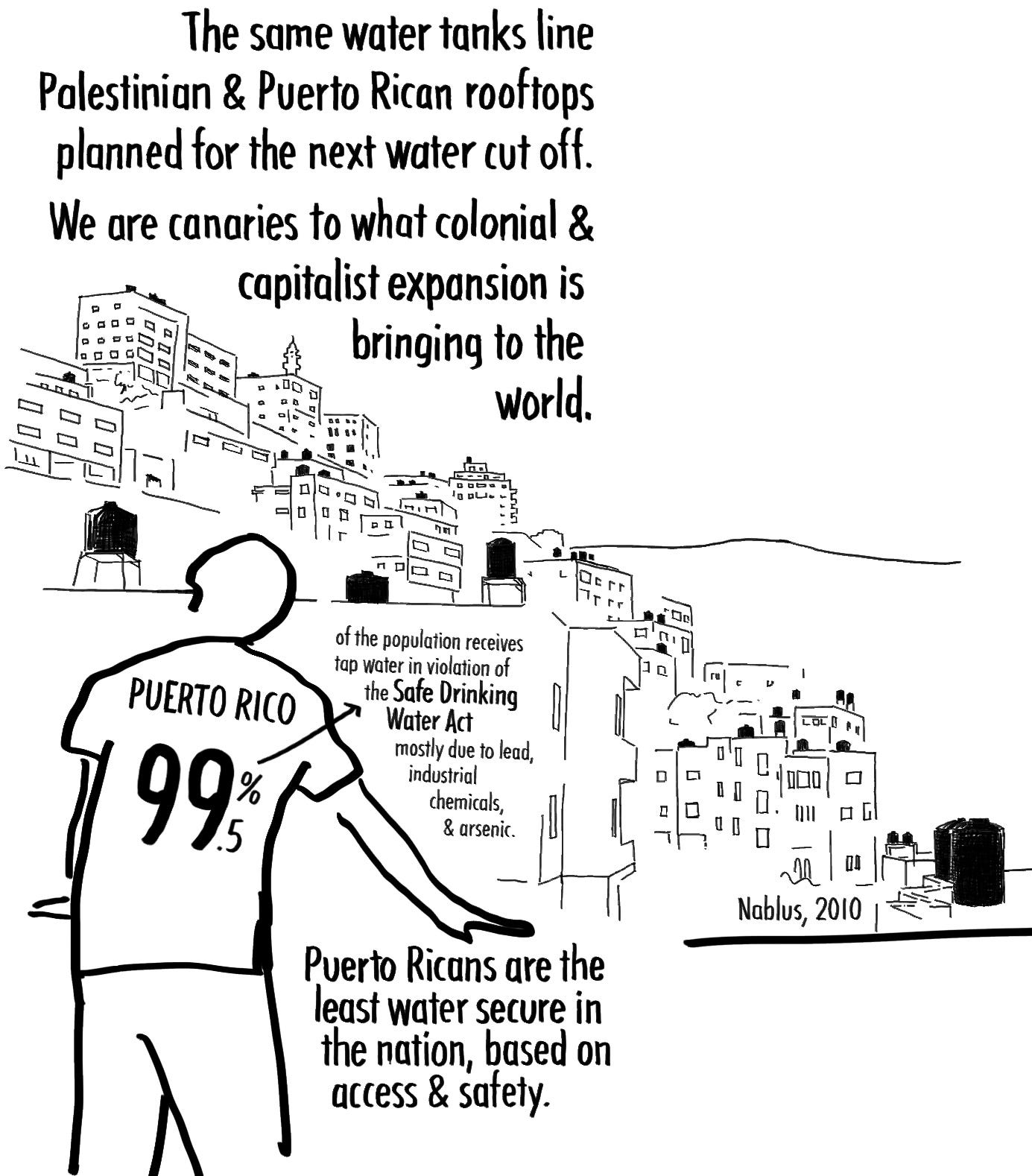
In this world, it seems the more we know, the more despair we feel, but at the same time, we use this despair to fuel a productive path towards the future."
- Adham Karajeh*, Ard Al-Ya’as Cooperative, Saffa, Palestine
No business as usual! Our despair fuels new zines for Earth Day during genocide, at the intersection of agroecology and liberation.
In the south of Puerto Rico, occupying some 2,000 acres of rich agricultural land, there is a mango farm. It was started 40 years ago, when 200 Israelis came to Puerto Rico to implement their sustainable agricultural technologies on a land that they would name Gan Eden, or Garden of Eden. The farm’s products are barely available to Puerto Ricans, instead they are made for export to Miami and Europe. Meanwhile, shipping records show that their biggest import supplier is none other than the state of Israel, where they purchase their farm equipment and packaging products. In essence, money from Miami and Europe is being funneled to Israel with Puerto Rican soil and day labor as the intermediary. Colonialism can take many forms.
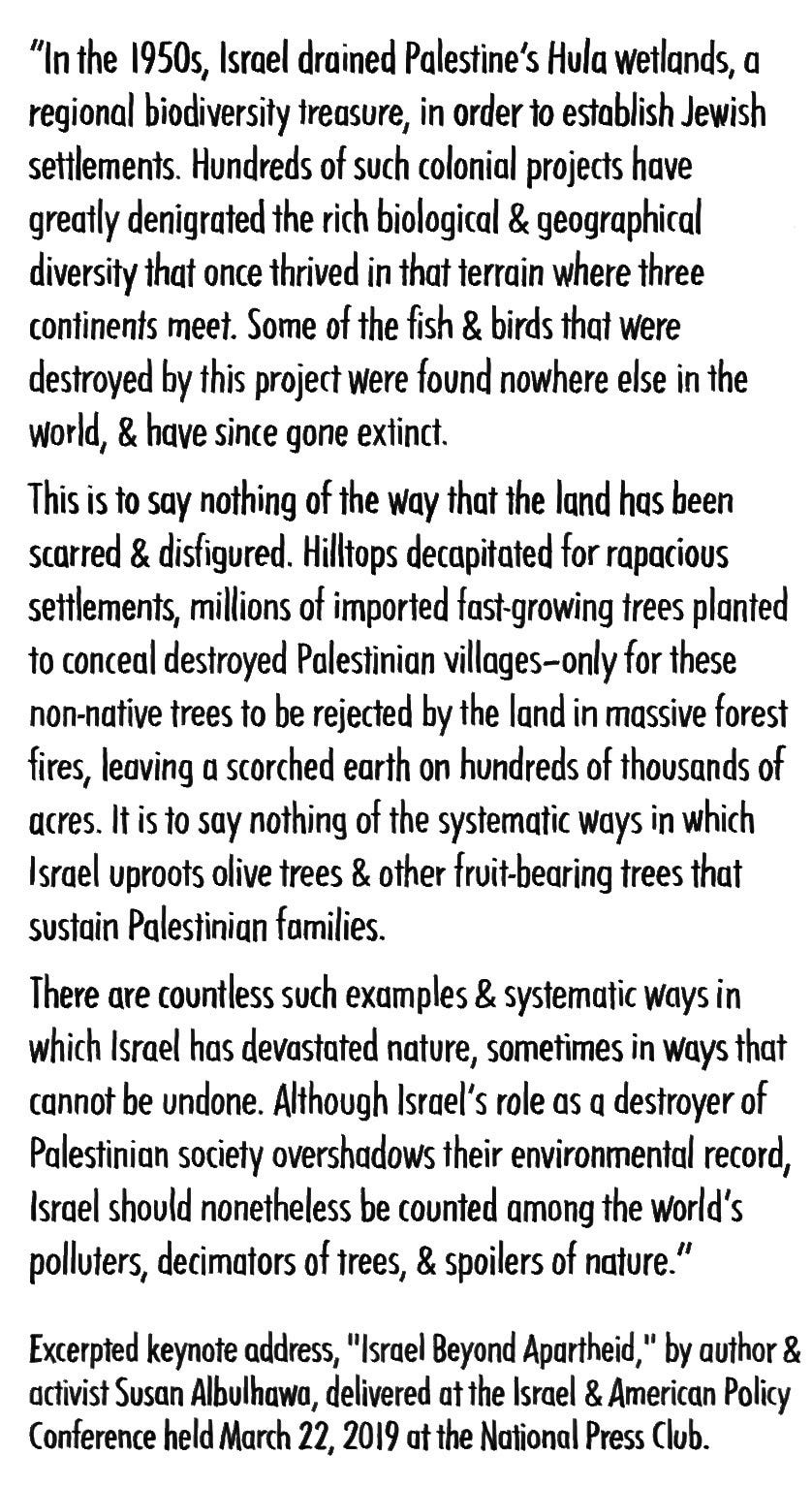
The kibbutzim movement, hundreds of small collective communities built upon revolutionary principles such as socialism, sustainable agriculture, and gender equality, have been used as a weapon to colonize Palestine. They are the tip of the spear in stealing and occupying Palestinian land, populated by the people willing to do the dirty work on the front lines of occupation. Up until 1967, almost all of the borders between so-called Israel and the Occupied Palestinian Territories was occupied by kibbutzim communities. Here, their sustainable agricultural practices that informed the myth of “Making The Desert Bloom” created a new, patriotic Zionist who was here to save the world while simultaneously conquering it.
Any Ideology that is disconnected from humanity is a dangerous thing. If soil is more important than your neighbor, you are missing the point entirely!

“Although peasant communities in the Global South define food sovereignty as a right to control the food you grow and eat, Indigenous food sovereignty movements are focused on rekindling longstanding relationships with the land. Indigenous food sovereignty movements are about health revitalization, language conservation, and connecting youth with elders." - The Red Deal
Unfortunately, while sustainable agriculture promises a change to the food system, it remains based in the same conventional ideologies of domination and is greatly informed by zionist tools of conquest. There are countless sustainable ag technologies that fund the genocidal state of Israel, but here are three easy examples.
Home BioGas is a popular composting device that accompanies many sustainable ag projects. Many people who move to Puerto Rico to start sustainable off-grid projects use Home BioGas to do what nature already does for free, while sending money overseas to fund genocide.
Palram is a leading producer of greenhouse plastics, an invention that is made for cold climates yet is becoming increasingly popular in PR. It was developed on a kibbutz that, largely due to Palram’s success, is today worth $200 million.
Lastly, Israel’s most famous farm tech is drip irrigation. As foreigners unable to cultivate in a dry climate, kibbutz settlers developed the company Netafim, which has become the world’s largest supplier of irrigating tools. From drip lines and sprinklers to large scale integrated systems, Netafim has funded one kibbutz to the tune of $400 million and counting. As the home of the only tropical rainforest under US control, the most sustainable thing about Netafim’s products in PR is the genocide they sustain in Palestine.
“Why agroecology? There’s the nationalist bent, and I always question, as a person, what I can do for my country. I promote the conviction that we need a model of food production without relying on the occupier. For example, all chemical fertilizers that enter our market are controlled, in one way or another, by the occupier. There can be no liberation if we don’t have sovereignty over our daily bread. Agroecology is a way towards food sovereignty, which can then enable us to consider questions of political liberation.” — Saad Dagher*
(*Selections of Agroecology, from Palestine to the Diaspora by Nadine Fattaleh and Adam Albarghouthi (Tran./Ed.) from volume 25, no. 1, The Soil and the Worker.)
ZINES!
This month, we made our newsletter into another zine. We are interested in sharing our work without the need for screens or social media.
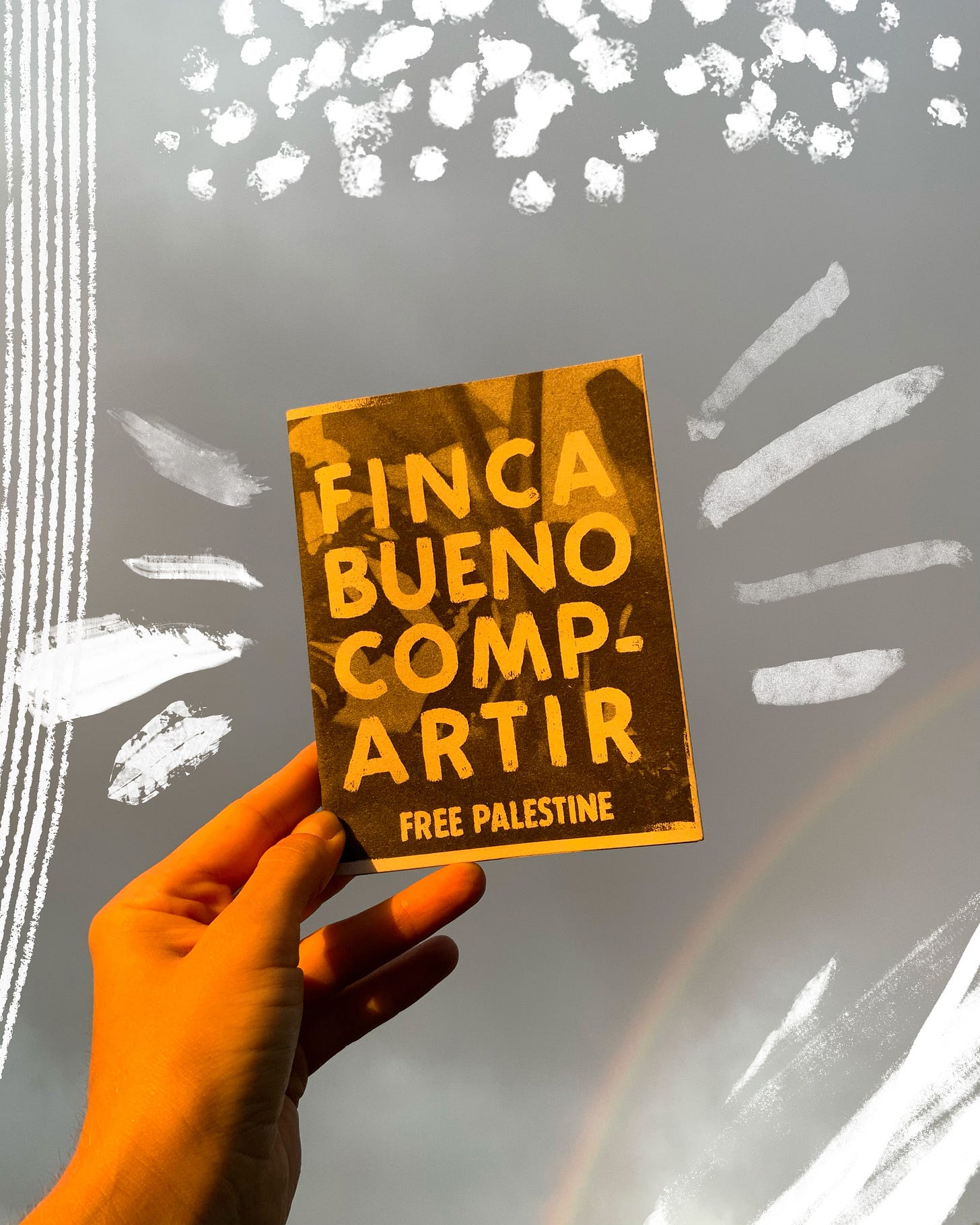

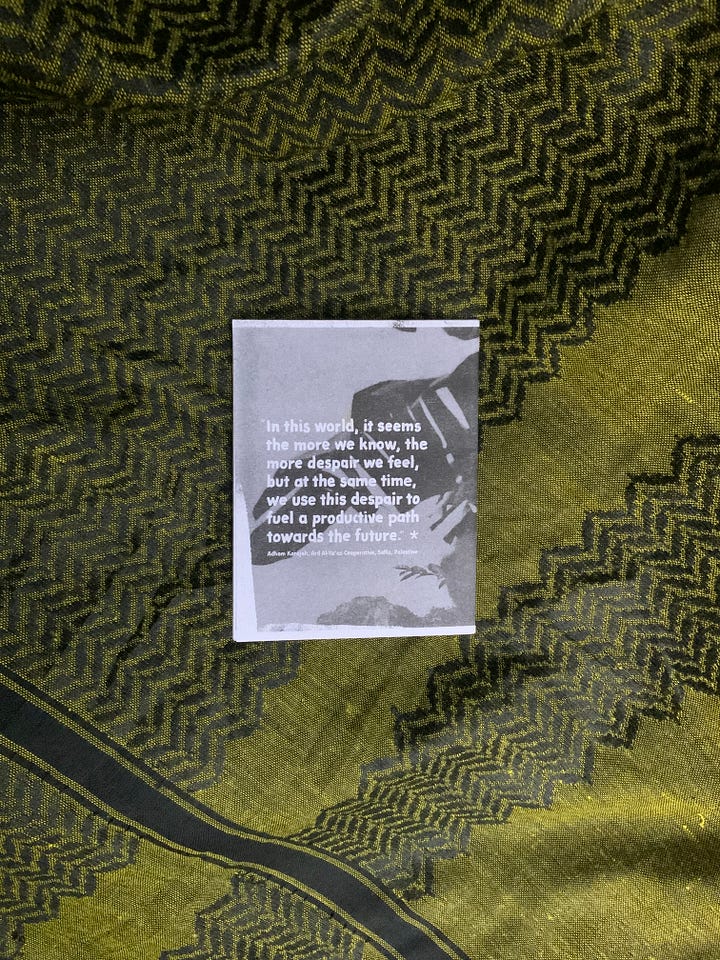
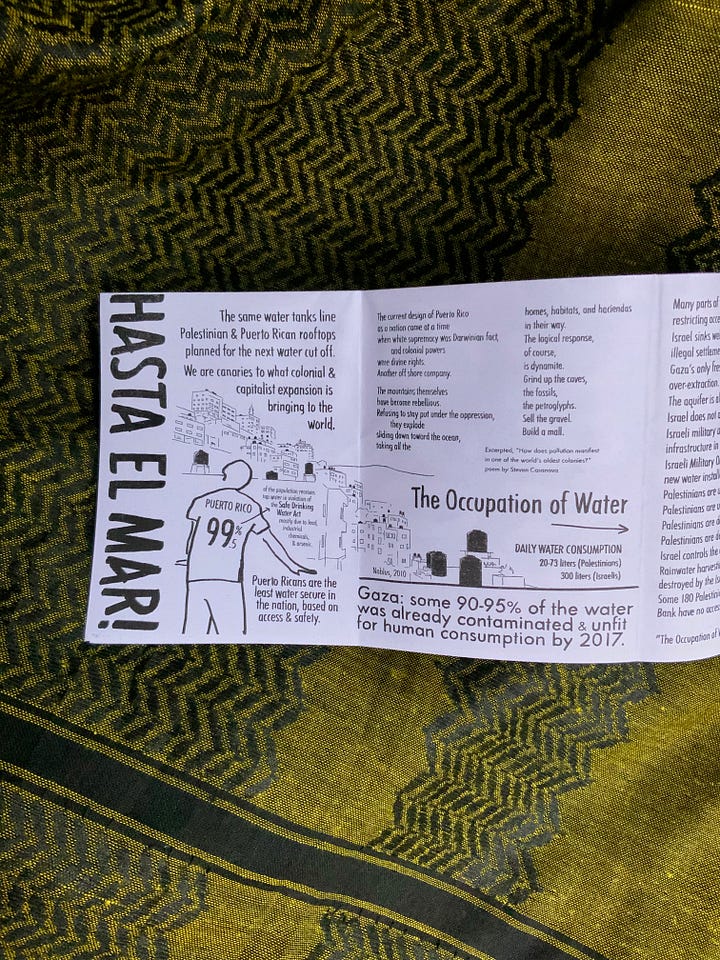
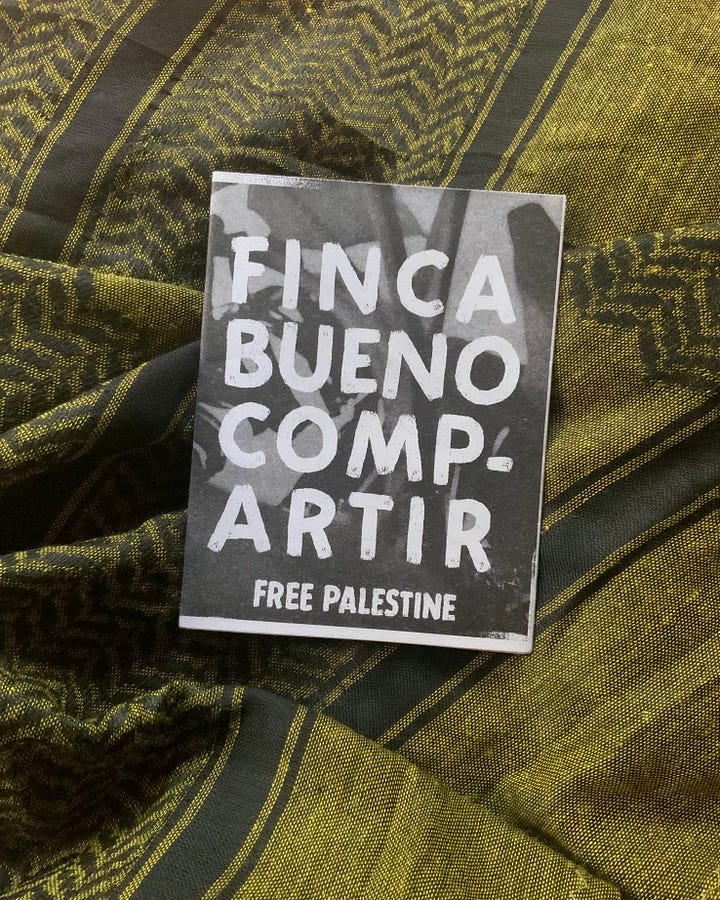
Friends afuera (outside of Puerto Rico), ordering physical copies of our zines from our farm store makes it possible for us to give zines away for free in PR. If you are in a privileged position to support our work, we would appreciate your support!
Bueno Compartir Farm Store
But we’re also like, fuck capitalism! Make everything accessible!
Print the new zine at home! (with 11x17in paper)
MORE ZINES!
Anyone paying attention to the atrocities funded by our tax dollars must be feeling it in their body. We are. So in response, we made our research-based writing about gut health into two “how-to” zines. The latest, How We Make Kombucha, is now available on the farm store. (Solamente ingles—español pronto!)
But again, fuck capitalism! Make everything accessible!
Print the kombucha zine at home! (with 8.5x11in paper)

Our research-based writing about kombucha and gut health can also be found linked below. (Pro tip: read these free newsletter versions together, but start with Steven’s!)
https://stevencasanova.substack.com/p/notes-from-two-years-without-a-fridge
https://buenocompartir.substack.com/p/notes-from-two-years-without-a-fridge



As always, love the newsletters and how much y’all put into them!! This was a hard read for me because it really put into perspective what’s happening with the land and it breaks my heart. These foreign invaders hurt the lands we love and cherish, then laugh in our faces! If only they see natures ways.